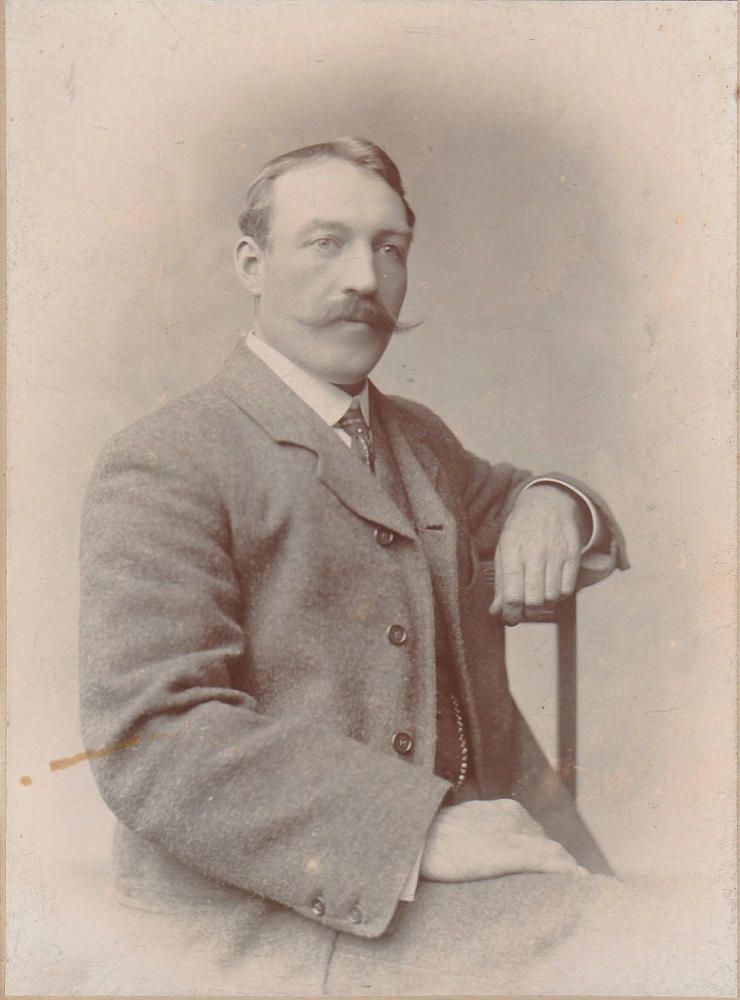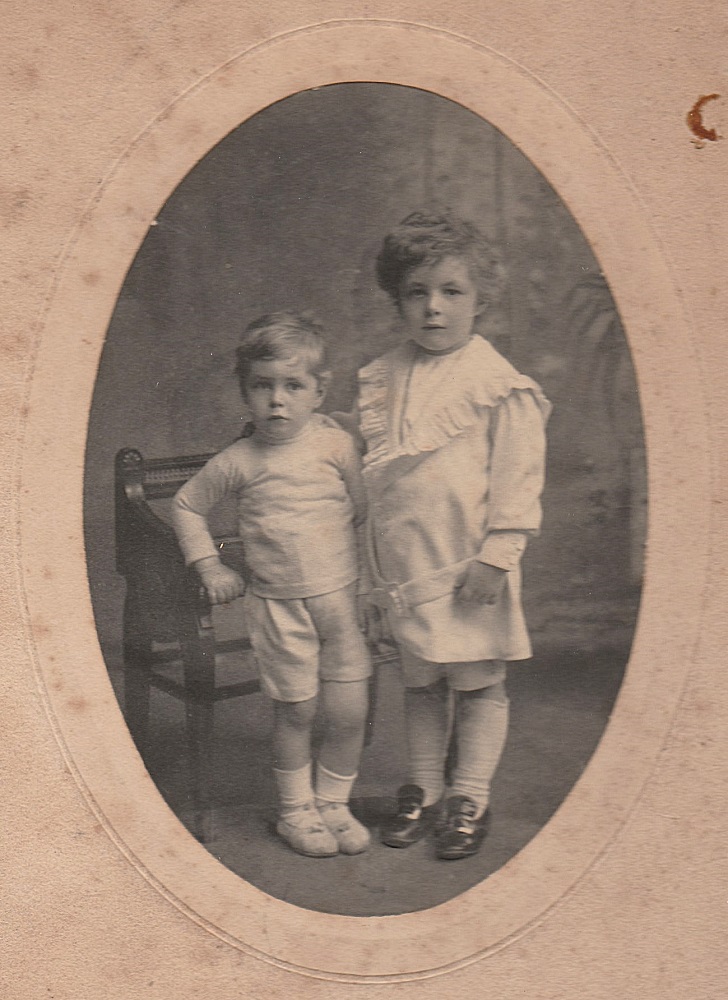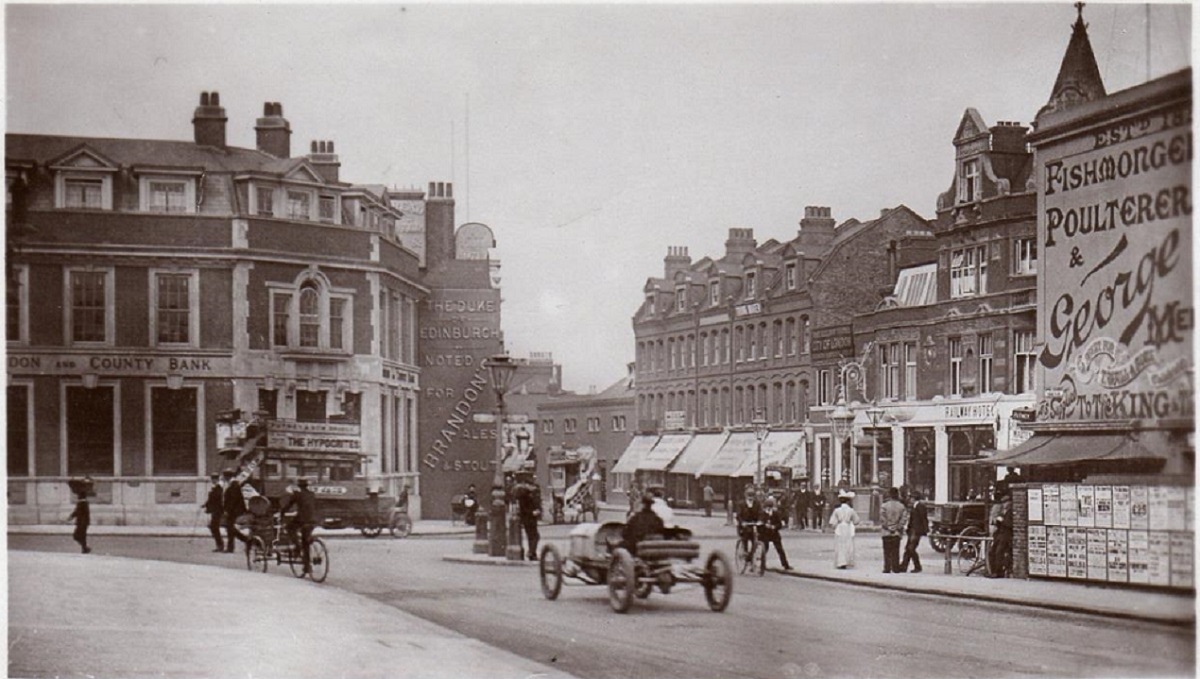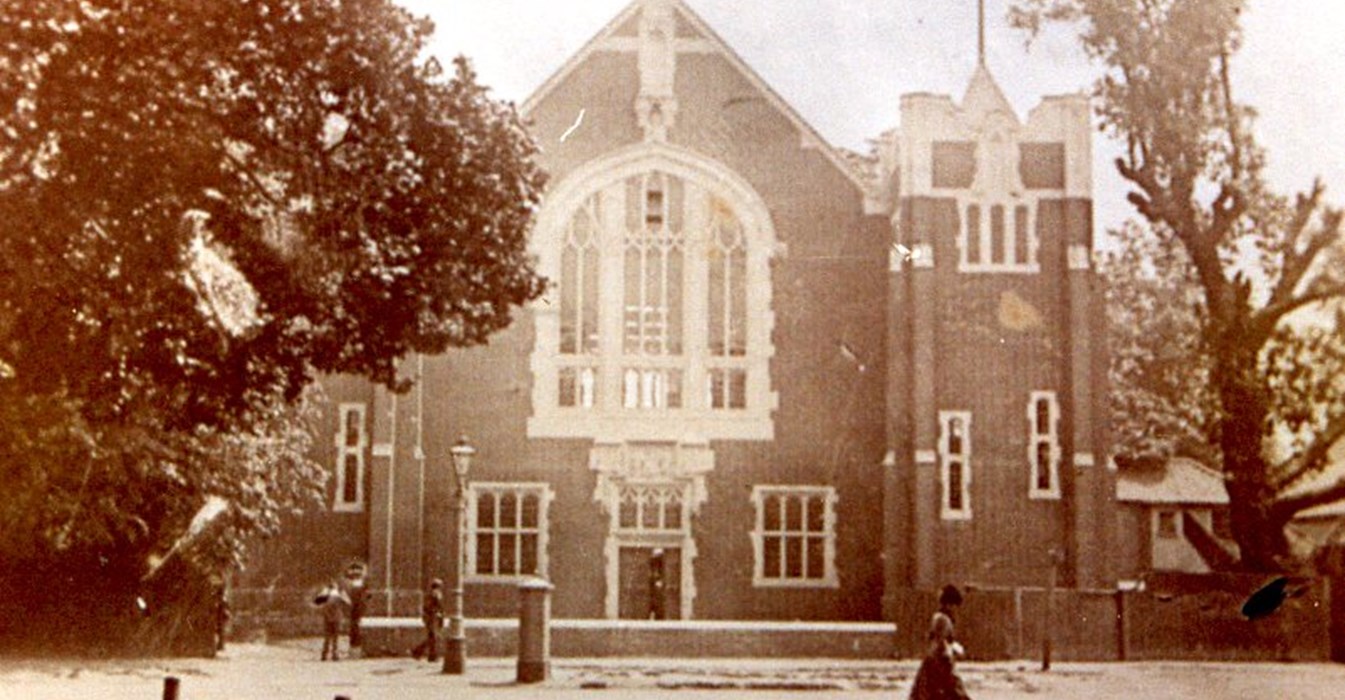


I forget a great deal but I can remember too. There is no connection between the sights and happenings I remember except the connection of period, the time before 1914. Standing between my father's knees when we went in a hansom cab. The four-wheeler piled high with luggage when we set off to the station en route for the seaside and the fascination of horses drinking dirty water from horse troughs - there were many - and of seeing a cabbie dip a brush in the trough, shake it and give his battered top hat a polish. My awe when we passed a street thickly covered with straw because in one of the houses someone lay ill. The wheels and hooves went so softly. The sight of a funeral procession with the glass sided coach and slow pacing black horses, long tailed and maned, the closed carriages following - all in black. I wanted a funeral like that, I decided, and with the blackest horses that could be found, each with the longest mane, perfectly brushed, and tails that touched the ground. I don't mind a bit now.
The early motorbuses frequently broke down and one of the first cars to appear in East Sheen belonged to Dr Hovenden, and was driven by steam. It was silent and might leave a trail of red hot cinders behind it.
The change must have been fairly gradual but, looking back, it seems that the horse disappeared suddenly from my life and there were motors. We can hardly move for them now.
We, my brother Brian and myself, belonged to an organization called the League of Pity which existed to raise money for poor children. It was run by wealthy sisters (the Misses Keller) who lived in a big house on the Upper Richmond Road. Once a year, in the summer, there was a fête in the grounds of the house, a stage was built and we acted a play. Our mothers made the costumes and a man from London came to make us up for our parts with real grease paint. We had a great many rehearsals and I loved them and was always to be found among the girls who made a fuss of me. I could not keep away from them in their bright dresses and I wanted to stoke their long hair, like horses' mains, tied with big shiny satin bows.
We did Ali Baba and the Forty Thieves. I was one of the thieves. There were only ten of us but we passed through the makeshift cave made of bamboo and brown paper, four times and were so counted up to the required number.
It was on my way to one of these fêtes that I saw a woman whose long skirt touched the dusty pavement. I must have been used to seeing long skirts but I think I remember this one because of the dirt on the hem.
At the end of July 1914 I was with my father, mother and brother at Littlehampton. German string bands wearing dark military uniform played in the streets. On August 4th Brian and I were sailing our toy boats in a pond near the sea. A British destroyer appeared off the harbour and a boatload of sailors landed. For us the war had started and we never saw the German bands again. I was then ten years old.
I hated my school days. I was by then, 1914, at Richmond Hill School, from which I was nearly expelled for going home after wiping the board clean of the impositions set me and others. I had been kept in after school hours for over two hours for several days running and had had enough of it. I loathed the masters with one exception, Arthur Noding, who took great interest in my drawing and even showed me two pictures he had painted in oil colour. I will always remember him with gratitude.
Edward Reynell was there too but he left to go to Eastbourne College and soon after my brother and I went to King's College, Wimbledon.
School days during the 1914-18 War were probably a good deal worse than they are now. Many of the masters were old, dragged out of retirement, the young ones had, many of them, gone to fight. The food was horrid and not plentiful and the classrooms bitterly cold in winter. We had a long journey to and from Wimbledon in unheated trains. My hands and feet were covered in chilblains, often broken ones; I even had them on my ears. I learned almost nothing and was always at the bottom of the class whilst the master, at the far end of the room stood with his back to the meagre fire, his gown held up, trying to warm his behind. One sadist I will not forget, a Mr Stevenson, an old man. His method of punishment was to hit you hard on the head with the edge of a penny. He kept a worn thin Victorian penny in his waistcoat pocket for the purpose and it hurt abominably. Eventually we heard he had been killed in an accident on the railway and we were not sorry.
The war went on and we were now living in Richmond, Mount Ararat Road, and had three soldiers billeted on us and liked them. There were privates Cook and Leapman, and another whose name I have lost. Trenches were dug in Richmond Park and they trained there. In due course they went to France and all survived.
I spent my holidays with a bicycle in Richmond Park. The Horse Guards Blue used to come there, hundreds of them on horseback in blue uniforms. A vet accompanied them but he took no part in their manoeuvres. I made friends with him and he would let me ride his horse. Sitting in the saddle was like sitting in an armchair, it was so comfortable.
When off duty, every soldier had his girl and they took them to the Park and lay down in the bracken. We boys played in the bracken, for it was very high, and we often found money there doubtless fallen from a warrior's trouser pocket, unheeded in the game of love. I found a French letter too and kept it, wondering what it was for. I was rather innocent still, but when I showed my prize to an older boy he was most interested, explained crudely its purpose and offered me sixpence for it, which I took. Rafferty was his name.
Then once, in Sidmouth Plantation*, I saw the act in progress and was reminded of the cow and the bull. I was interested to see that the man, a civilian as it happened, was able to keep his glasses on all the time, and they were the pince-nez variety, never seen now.
* 'Sidmouth Plantation', e.g. the Isabella Plantation in Richmond Park which was first established by Henry Addington, 1st Viscount Sidmouth in the early 19th century. GRH
Meanwhile at school I continued to learn very little. I disliked organized games and a s a result of pressure brought by masters and others had joined the O.T.C.*, which was said to be voluntary. The khaki smelled beastly and made me itch. I had a pair of my mother's silk stockings under my puttees and even those only took the edge off my discomfort.
* O.T.C.: Officers' Training Corps, a militaristic feature of private education in the Britain of that period, and indeed much later. JH
We spent a great deal of time in uniform. No one knew how long the war would last and we were being got ready. There were parades, route marches and field days with regular soldiers on the Surrey hills. One of these field days put an end to my membership of the O.T.C. Loaded with equipment and a rifle, we had been at it for hours. The rain came down and soaked us and I can still see the cloud of steam, and smell it, that rose when the hot sun came out and began to dry us. We were told to halt. I felt tired and thirsty and without thinking took a drink from my water bottle. A sixth-form sergeant, a certain Finlayson, dashed up and told me no order had been given to drink, which was true, but he made the mistake of knocking the bottle from my mouth, cutting my lip. I hit him, hard.
Consternation! Captain Oglethorpe appeared. I would be court-martialed when we got back to school. I was. They went through the whole thing in what I assume was the correct army style. Prisoner, remove your cap, take one step back, or forward, or two or three steps. I was charged with disobeying orders and with striking a superior officer. I pleaded guilty to the first charge, not guilty to the second. The superior officer had laid hands on me first and I considered him in the wrong. Overruled - I was sentenced to sweep out the gymnasium every evening for, I think, a month.
I said I would not do it and they were playing at soldiers. To my surprise they let me go. The following Monday, Mondays were always O.T.C. days, I did not go on parade. I spent the afternoon in the library, reading. I never put on khaki again, I never went on parade again and every Monday afternoon until I left King's I read in the library. Nothing was said. I was left alone and I began to learn something there after all.
The only lessons I enjoyed at King's were those in English, for we had a master who loved Shakespeare and was able to give some of his love to us, and the classes taken by the Rev. Kingsford. I cannot remember what subject he took, it was not the Bible, but he had a colourful personality and he talked to us about Greece and Rome and fired my imagination. The art classes were not much good. The master, a gentle soul named Hulme, was mercilessly ragged. When he left George Rhead took his place. Rhead was ragged too, but not so badly. He was no teacher and not much of an artist but his father, Woolliscroft Rhead* had been a pupil of Ford Maddox Brown. George Rhead thought I had ability. He got some Dürer engravings and some cartoons for stained glass by Ford Maddox Brown from the V&A and set me to copy them. He told me I must count the number of lines Dürer had used in each passage. Pre-Raphaelite methods, no doubt.
* George Woolliscroft-Rhead junior (1855-1920). GRH
EARLY LIFE MEMOIR -2
Clifford Henry Hall (1866 - 1940, father of Clifford Hall.
Isobel Hall (1870 - 1952), mother of Clifford Hall.
Clifford and Brian Hall, circa 1909.
A motor car in the Upper Richmond Road, circa 1909.
King's College, Wimbledon.




